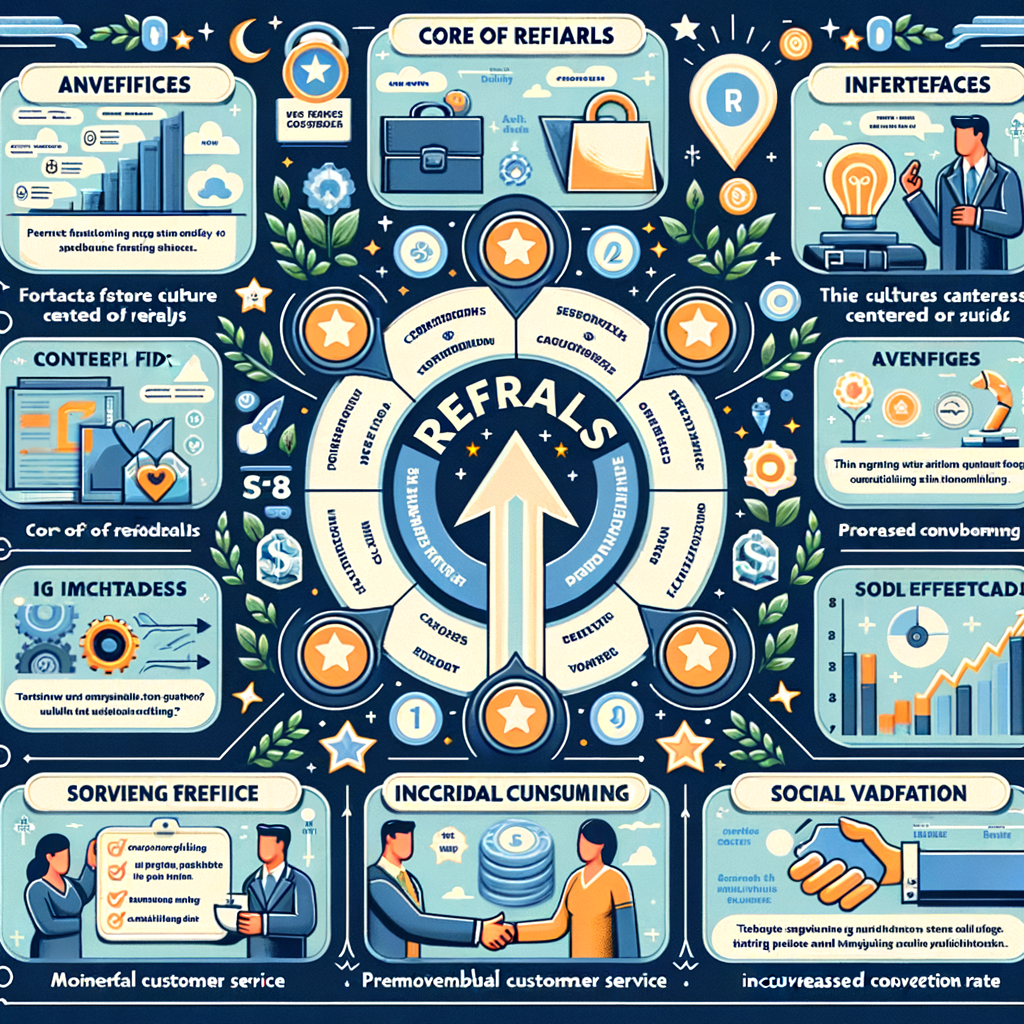Why Referrals are Important to a Business
 In the dynamic world of business, referrals have emerged as a cornerstone for growth and sustainability. With over 30 years of experience in SEO and content marketing, I’ve witnessed firsthand the evolution of marketing strategies and the constant that remains: the power of referrals. This article delves into why referrals are important to a business, highlighting their benefits and the impact they can have on a company’s success.
In the dynamic world of business, referrals have emerged as a cornerstone for growth and sustainability. With over 30 years of experience in SEO and content marketing, I’ve witnessed firsthand the evolution of marketing strategies and the constant that remains: the power of referrals. This article delves into why referrals are important to a business, highlighting their benefits and the impact they can have on a company’s success.
The Essence of Referrals
At its core, a referral is a recommendation from one entity to another, deemed valuable because it comes from a trusted source. In the context of business, referrals are golden. They are not just a testament to a company’s competence but also a key driver of organic growth. But why do referrals hold such importance?
Credibility and Trust
Referrals inherently carry a level of trust and credibility. When a customer or a well-respected individual within the industry refers your business, they are essentially vouching for the quality of your products or services. This vote of confidence can be incredibly persuasive, often more so than traditional advertising. In a world where consumers are bombarded with countless choices, being recommended by a trusted source can significantly influence decision-making processes.
Cost-Effectiveness
Another reason why referrals are important to a business lies in their cost-effectiveness. Compared to the expenses associated with other marketing strategies, referrals can be a low-cost or even free method of acquiring new customers. The process leverages your existing customer base, requiring minimal expenditure while potentially yielding high returns. This aspect is particularly beneficial for startups and small businesses operating on tight budgets.
Higher Conversion Rates
Referrals often lead to higher conversion rates. The personal recommendation comes with a level of pre-established trust, making the referred individuals more likely to convert into customers. Studies have shown that people referred by friends or colleagues are more likely to make purchases. This higher conversion rate not only boosts sales but also enhances the efficiency of your marketing efforts, ensuring resources are utilized where they yield the most return.
Building a Referral-Driven Culture
Understanding why referrals are important to a business is only the first step. Cultivating a culture that encourages and facilitates referrals is crucial. This involves providing exceptional service or product quality that customers want to talk about. Additionally, creating a structured referral program can incentivize existing customers to spread the word about your business.
Exceptional Customer Experience
At the heart of successful referrals lies the customer experience. A satisfied customer is much more likely to recommend your business to others. This means consistently meeting and exceeding customer expectations, from the quality of your offerings to the efficiency of your service. Every interaction counts, and a positive experience can turn a one-time buyer into a lifelong advocate for your brand.
Leveraging Social Proof
In today’s digital age, social proof is more important than ever. Online reviews, testimonials, and social media mentions all serve as modern-day referrals that can significantly impact your business’s reputation and attract new customers. Actively encouraging satisfied customers to share their positive experiences online can amplify the effect of traditional word-of-mouth referrals.
Conclusion
The question of why referrals are important to a business can be answered by their ability to build trust, save on marketing costs, and generate high-quality leads with better conversion rates. In a competitive market, referrals can set a business apart, laying the foundation for sustainable growth. As businesses continue to navigate the intricacies of marketing in a digital world, the timeless value of a referral remains undisputed. By fostering a culture that prioritizes customer satisfaction and actively encourages referrals, businesses can unlock their full potential and achieve long-term success.
In conclusion, the importance of referrals cannot be overstated. They are a testament to a business’s quality, credibility, and the satisfaction of its customers. For businesses seeking to grow and thrive, investing in strategies that generate and maximize referrals is not just beneficial—it’s essential.
